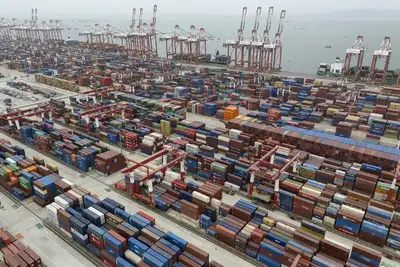Tariff turbulence: How are big brands dealing with economic outlooks amid trade uncertainity

As uncertainty looms over corporate earnings this season, as businesses of all sizes continue to struggle with a volatile global trade environment disrupted by recent changes in US policy.
With around half of the S&P 500 companies having reported their latest quarterly results, attention has turned from performance figures to survival strategies, particularly around tariffs and shifting consumer behaviour.
General Motors
General Motors is feeling the heat, trimming its profit outlook in anticipation of rising costs linked to auto tariffs. The car manufacturer, whose production network is spread across North America, now expects full-year adjusted earnings before interest and taxes to fall between $10 billion and $12.5 billion, a sharp reduction from its earlier estimate of $13.7 billion to $15.7 billion. The revised figures reflect a potential tariff exposure of up to $4 or $5 billion.
However, the blow may be softened by Donald Trump’s executive order signed on Tuesday, relaxing some of the 25% tariffs on cars and car parts.
Harley-Davidson
Going a step further, motorcycle giant Harley-Davidson withdrew its financial forecast altogether due to ongoing uncertainty over tariffs and economic headwinds. With nearly 70% of its sales coming from the US, accordinf to FactSet, the company remained exposed to retaliatory tariffs imposed by trading partners.
Hershey
Chocolate maker Hershey is sticking with its full-year forecast, which include assessments for current tariff expenses. The company expected $15 million to $20 million in the second quarter alone. Much like Hershey, other chocolate making companies are also facing difficuly as cocoa supply issues continue to push raw material prices higher. Over 70% of global cocoa comes from West Africa, where weather damage and political instability have disrupted production.
Church & Dwight
Meanwhile, consumer goods company Church & Dwight also sharply downgraded its expectations, citing both tariff costs and weakening consumer demand. The maker of household staples like Arm & Hammer now forecasts flat to 2% earnings growth this year, down from earlier projections of up to 8%.
Its projected tariff hit is estimated at $190 million over the next year. However, to cushion the impact, the company is planning to stop sourcing Waterpik flossers from China, and is considering shutting or selling off some brands. It is also expecting to sell off or shut down some of its brands.





